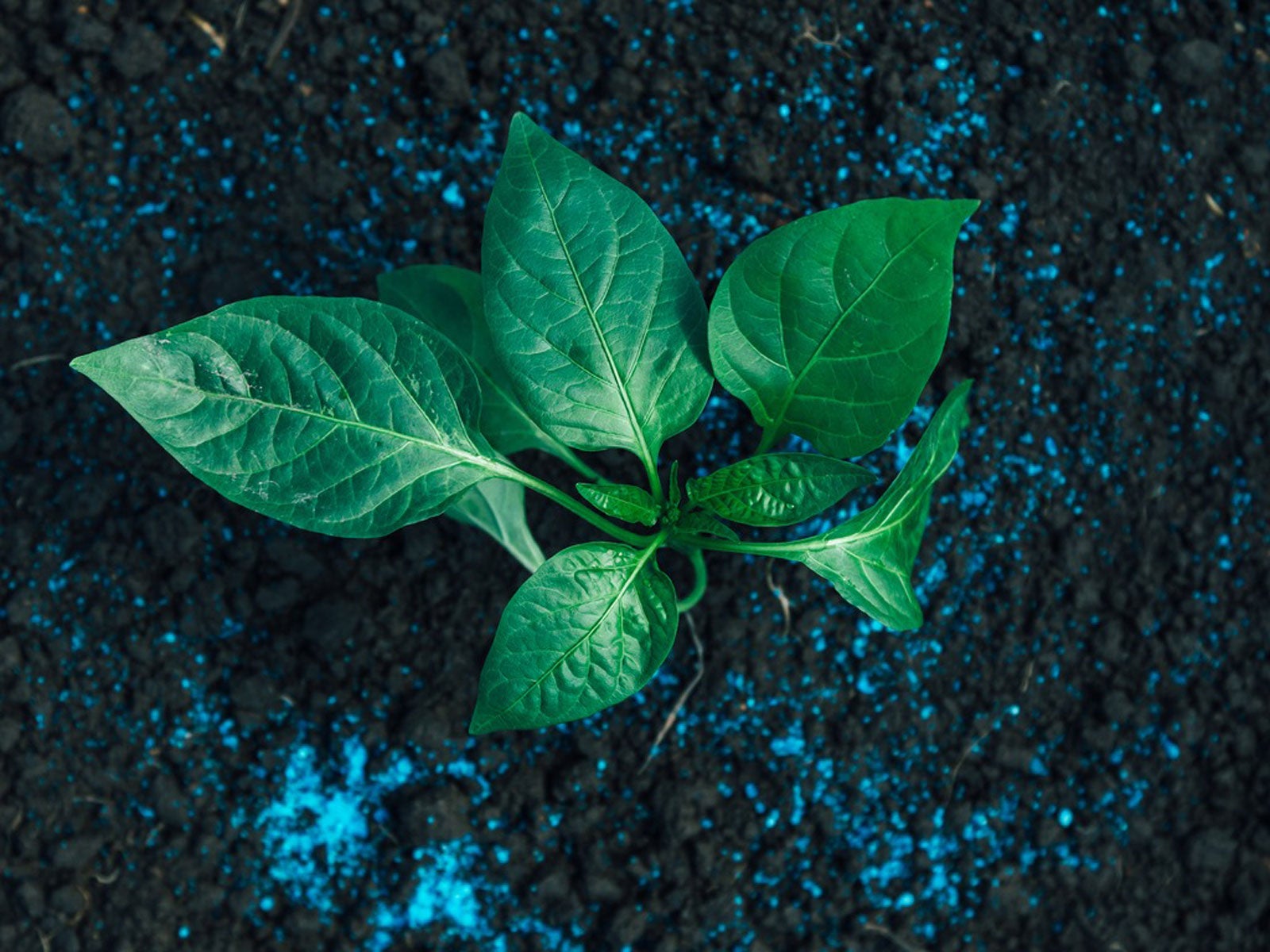Discover the Best Fertilizers for Peppers and Enhance Your Garden's Return
Wiki Article
Organic Vs. Synthetic Fertilizers: Which Is Best for Supporting Healthy Pepper Plants?
In the realm of supporting healthy and balanced pepper plants, the option between organic and artificial plant foods stands as a pivotal decision with far-reaching effects. While both alternatives aim to provide necessary nutrients to support plant development, the nuances of their impact on the dirt, plant health, and the atmosphere trigger an argument that echoes throughout the horticulture community. Comprehending the distinctive advantages and possible challenges of each plant food kind is crucial for pepper farmers seeking to enhance their yields while maintaining a sustainable and eco-conscious method.Advantages of Organic Fertilizers
Organic fertilizers offer an environmentally-friendly and lasting method to beneficial pepper plants, offering necessary nutrients without the use of artificial chemicals. These all-natural plant foods are derived from natural sources such as compost, manure, bone meal, and seaweed, promoting soil health and wellness and biodiversity. Unlike synthetic fertilizers, organic options release nutrients slowly, ensuring a constant and well balanced supply for pepper plants to prosper.One significant benefit of natural fertilizers is their capability to boost dirt framework and water retention. By improving soil wellness, natural fertilizers promote helpful microbial task, which aids in nutrient uptake by pepper plants. Furthermore, organic plant foods reduce the threat of chemical run-off, protecting water sources from air pollution and securing the environment.
Additionally, organic fertilizers add to long-lasting dirt fertility by promoting the development of advantageous dirt organisms. These microorganisms help break down organic matter, launching nutrients in a form that is conveniently obtainable to pepper plants. best fertilizers for peppers. By promoting a healthy and balanced dirt ecological community, natural plant foods support lasting pepper cultivation practices that profit both plants and the setting
Drawbacks of Artificial Plant Foods
Artificial plant foods, in comparison to their organic counterparts, present different negative aspects when utilized to nurture pepper plants, affecting both plant health and wellness and environmental sustainability. One significant downside of artificial fertilizers is their tendency to seep nutrients from the dirt rapidly. This quick leaching can result in nutrition discrepancies in the dirt, triggering plants to deal with poisonings or shortages. In addition, artificial plant foods can harm useful dirt organisms, such as earthworms and helpful microorganisms, interfering with the soil environment's equilibrium.In addition, the overuse of artificial fertilizers can contribute to water contamination. Excess fertilizers not absorbed by plants can get rid of right into water bodies, bring about eutrophication, where algae blooms diminish oxygen degrees in the water, damaging water life. Moreover, artificial plant foods are usually originated from non-renewable sources, such as fossil gas, contributing to carbon discharges and ecological degradation during their manufacturing.
Nutrient Absorption Contrast
When contrasting artificial and natural fertilizers in terms of nutrient absorption, natural fertilizers have the benefit of giving a more well balanced and slow-release resource of nutrients. Organic fertilizers contain a range of macro and micronutrients that are not just beneficial for the plants yet also advertise healthy and balanced soil microbial activity, which assists in nutrient uptake.Moreover, natural fertilizers boost soil structure and water retention capacity, permitting pepper plants this to accessibility nutrients extra successfully. This enhanced dirt quality helps with origin development, allowing far better nutrient absorption. Artificial fertilizers, although originally enhancing plant growth because of their high nutrient concentrations, may impede long-lasting nutrient absorption by derogatory dirt health with time.
Ecological Impact Factors To Consider

On the other hand, artificial fertilizers, although commonly even more immediately available and focused to plants, can have detrimental effects on the setting otherwise applied effectively (best fertilizers for peppers). Their manufacturing calls for high power inputs, causing greenhouse gas exhausts and adding to climate change. The overflow of try this excess synthetic fertilizers can pollute water resources, leading to eutrophication and hurting aquatic ecological communities.
Best Fertilizer Practices for Peppers
When feeding pepper plants, enhancing nutrient uptake and minimizing environmental influence are essential considerations. To attain this, it is necessary to follow best fertilizer methods customized to the particular requirements of pepper plants. One vital technique is to perform a soil test prior to using any type of fertilizers. This test can figure out the pH degree of the dirt and recognize any nutrient deficiencies, directing you in selecting one of the most suitable plant food formula.One more essential practice is to fertilize pepper plants at the correct time. Typically, peppers take advantage of getting plant food at growing and afterwards once more when they start to blossom. Over-fertilizing can bring about nutrient inequalities and harm the plants, so it is important to adhere to suggested application prices.
In addition, choosing a well balanced fertilizer with an NPK ratio that suits pepper plants' requirements is basic. Eventually, combining natural and artificial plant foods deliberately can assist support healthy pepper plants while lessening ecological effect.
Verdict

Organic fertilizers provide an environmentally-friendly and sustainable strategy to nourishing pepper plants, offering vital nutrients without the use of artificial chemicals. Unlike artificial fertilizers, natural choices launch nutrients slowly, ensuring a well balanced and constant supply for pepper plants to flourish.
Artificial plant foods, in contrast to their natural equivalents, pose various negative aspects when used to nourish pepper plants, influencing both plant wellness and environmental sustainability. When contrasting organic and synthetic fertilizers in terms of nutrient absorption, natural fertilizers have the benefit of offering an extra well balanced and slow-release resource of nutrients.Moreover, natural fertilizers boost soil framework and water retention capacity, go to this site enabling pepper plants to accessibility nutrients more efficiently.
Report this wiki page